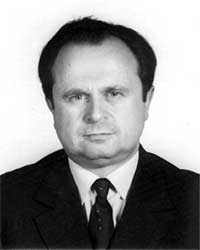Related Research Articles
The thomson is a unit that has appeared infrequently in scientific literature relating to the field of mass spectrometry as a unit of mass-to-charge ratio. The unit was proposed by R. Graham Cooks and Alan L. Rockwood naming it in honour of J. J. Thomson who measured the mass-to-charge ratio of electrons and ions.

1,3-Benzodioxolylbutanamine is an entactogenic drug of the phenethylamine, amphetamine, and phenylisobutylamine families. It is the α-ethyl analog of MDPEA and MDA and the methylenedioxy analogue of α-ethylphenethylamine.
Atlas Werke was a German shipbuilding company, located in Bremen. It was founded in 1911.

Laser spray ionization refers to one of several methods for creating ions using a laser interacting with a spray of neutral particles or ablating material to create a plume of charged particles. The ions thus formed can be separated by m/z with mass spectrometry. Laser spray is one of several ion sources that can be coupled with liquid chromatography-mass spectrometry for the detection of larger molecules.

Van Krevelen diagrams are graphical plots developed by Dirk Willem van Krevelen and used to assess the origin and maturity of kerogen and petroleum. The diagram cross-plots the hydrogen:carbon atomic ratio as a function of the oxygen:carbon atomic ratio.

Ambient ionization is a form of ionization in which ions are formed in an ion source outside the mass spectrometer without sample preparation or separation. Ions can be formed by extraction into charged electrospray droplets, thermally desorbed and ionized by chemical ionization, or laser desorbed or ablated and post-ionized before they enter the mass spectrometer.
A hybrid mass spectrometer is a device for tandem mass spectrometry that consists of a combination of two or more m/z separation devices of different types.

Victor Lvovich Talrose was a Russian scientist and mass spectrometrist. He was known as the “Father of Russian Mass Spectrometry” and was the author of 440 articles and 6 monographs.

Michael (Mickey) Barber, FRS was a British chemist and mass spectrometrist, best known for his invention of fast atom bombardment ionisation.

Robert Reed Squires was an American chemist known for his work in gas phase ion chemistry and flowing afterglow mass spectrometry.
The Aston Medal is awarded by the British Mass Spectrometry Society to individuals who have worked in the United Kingdom and have made outstanding contributions to our understanding of the biological, chemical, engineering, mathematical, medical, or physical sciences relating directly to mass spectrometry. The medal is named after one of Britain's founders of mass spectrometry and 1922 Nobel prize winner Francis William Aston.

Desorption/ionization on silicon (DIOS) is a soft laser desorption method used to generate gas-phase ions for mass spectrometry analysis. DIOS is considered the first surface-based surface-assisted laser desorption/ionization (SALDI-MS) approach. Prior approaches were accomplished using nanoparticles in a matrix of glycerol, while DIOS is a matrix-free technique in which a sample is deposited on a nanostructured surface and the sample desorbed directly from the nanostructured surface through the adsorption of laser light energy. DIOS has been used to analyze organic molecules, metabolites, biomolecules and peptides, and, ultimately, to image tissues and cells.

John H. Beynon FRS was a Welsh chemist and physicist known for his work in mass spectrometry.
In mass spectrometry, a matrix is a compound that promotes the formation of ions. Matrix compounds are used in matrix-assisted laser desorption/ionization (MALDI), matrix-assisted ionization (MAI), and fast atom bombardment (FAB).
Kristina Håkansson is an analytical chemist known for her contribution in Fourier transform ion cyclotron resonance (FT-ICR) mass spectrometry for biomolecular identification and structural characterization.

Ron M.A. Heeren is a Dutch scientist in mass spectrometry imaging. He is currently a distinguished professor at Maastricht University and the scientific director of the Multimodal Molecular Imaging Institute (M4I), where he heads the division of Imaging Mass Spectrometry.
David Edgar Games was a Welsh chemist best known for his work in mass spectrometry and chromatography.
Jean Langhorne is a British biologist who is a group leader at the Francis Crick Institute. Langhorne has studied immune responses to malaria and Plasmodium falciparum. She was awarded the 2016 EMBO-BioMalPar Lifetime Achievement Award for her work on malaria immunology. She is Associate Editor of PLOS Pathogens and on the Advisory Board of Trends in Immunology.
Jane E. Thomas-Oates is a British chemist who is an emeritus professor at the University of York. Her research has considered the development of mass spectrometry for biological applications including proteomics, metabolomics, and glycomics.

Professor Abiodun Adewale Oladipo is a Nigerian academician, administrator, and politician. His Contribution includes, the field of nuclear chemistry, as well as his involvement in Nigerian politics. He serves as the Pro-chancellor and Chairman of the Governing Council of Osun State University.
References
- ↑ Elliot, Martin (September 1996). "An Appreciation of Brian Green". Rapid Communications in Mass Spectrometry. 10 (12): 1563–1565. doi: 10.1002/(SICI)1097-0231(199609)10:12<1563::AID-RCM700>3.0.CO;2-3 . ISSN 0951-4198.
- 1 2 "B. N. Green Prize". British Mass Spectrometry Society . Retrieved 2023-10-06.
- ↑ Mallet, Tony (September 1996). "British Mass Spectrometry Society: Aston Medal Award to Brian Green". Rapid Communications in Mass Spectrometry. 10 (12): 1566. doi: 10.1002/(SICI)1097-0231(199609)10:12<1566::AID-RCM1011>3.0.CO;2-F . ISSN 0951-4198.
This article needs additional or more specific categories .(October 2023) |